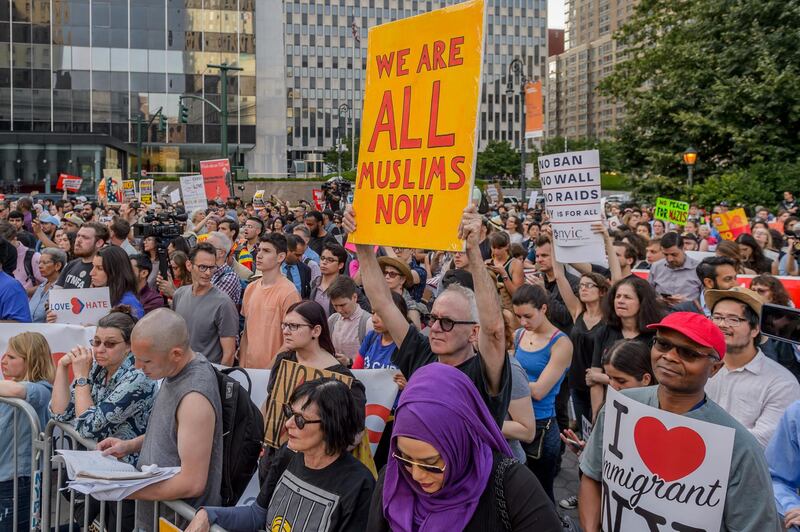When I told people I’d be spending a lot of time in the United States this summer, an unusually high proportion of my friends paused, or raised their eyebrows. “Why?” seemed to be the number one question, given that this year has perhaps been “peak Trump”, the pinnacle of which, if one can call it that, was Executive Order 13769, Protecting the Nation from Foreign Terrorist Entry into the United States, otherwise known as the Muslim ban.
While I’m not from one of the countries affected, I continue to be hurt by how casually negative and ignorant generalisations about Muslims are thrown around, particularly as I’ve been living happily in the Middle East for the past 10 years. It’s worse when it comes from fellow travellers as, apart from the inherent annoyance and disappointment, one of the reasons negative comments are so hurtful is that they go against the whole ethos of travelling and sometimes come hours or even days after you’ve met and come to like someone.
The next thing you know, you’re having dinner with a racist. Indigenous negativity is easier to deal with as, especially in America, people often are simply too spacially remote to look kindly on outsiders and then the onus is more on you to prove them wrong.
I can’t say I’ve noticed greater levels of ignorance since the rise of Trump, but over the course of three months this summer, I heard three such comments from Americans. The first was on a cruise in Alaska, where a fellow traveller, who had been charming hitherto, said outloud at the dinner table: “Oh, but you’re coming from a part of the world that hates us”, adding that she thought the American military had done a great job in Iraq.
Of course, this wasn’t the time or the place to unpack the full injustice and ignorance in front of six others; suffice it to say that my reply included the sentiment that on the contrary, those in the Middle East don’t hate the United States, despite having been given many reasons to do so (I told her to Google Fallujah). What is perhaps most surprising, I added, is how much people in the Middle East love America and aspire to its values.
The second incident came at a pizza restaurant in a pleasant village off the I-5 motorway in southern Oregon, near the California border. Again, the remark came as something of a surprise, as it was from an ostensibly erudite New Yorker. Despite having travelled all over Europe, he said he’d never been to England and really wanted to go to London (and unlike some Americans, he knew that England wasn’t in London), though he expressed some fears about his safety and hoped that “it’s not full of Muslims wanting to kill us”. Since I was leaving anyway, I retorted that there are so many Muslims that if they wanted to kill us in large numbers they’d have done it by now. I left him to pet his dog and didn’t wait for his reply.
The last comment came at a coffee shop in Portland, Oregon, where sitting next to me was one woman who’d worked in Abu Dhabi for several years, and her friend. In the course of the conversation I introduced myself, only for the friend to blurt out: “Do they all live in tents there?” Me and the other woman burst out laughing and took great pleasure in setting her straight. “I’ve seen more tents in Portland this summer than in a decade living in Abu Dhabi”, I told her, referring to the hipster city’s massive homeless problem.
Sometimes, travel can expose you to hurtful things. But it can also be so satisfying.
____________
Read more:
[ What makes America great again? Bears do ]
[ Ecotourism only makes sense if we all talk to each other ]
[ On the move: lessons from the cliff edge ]
____________





